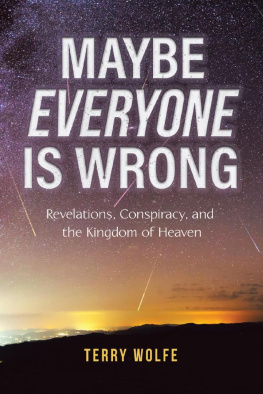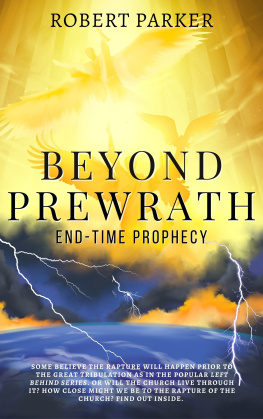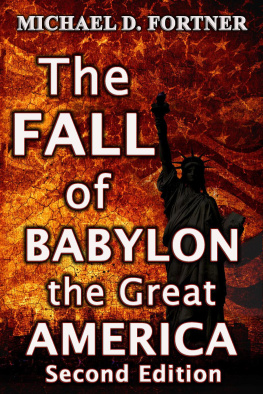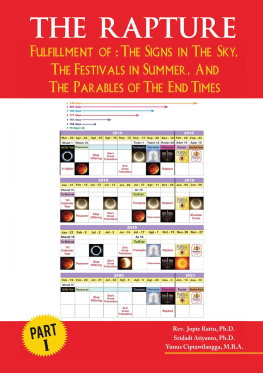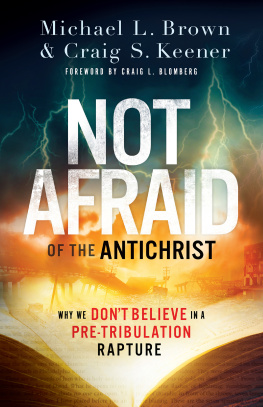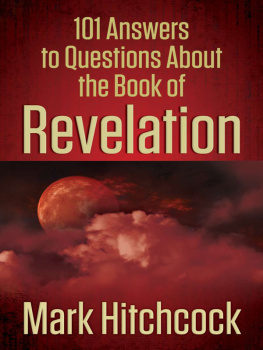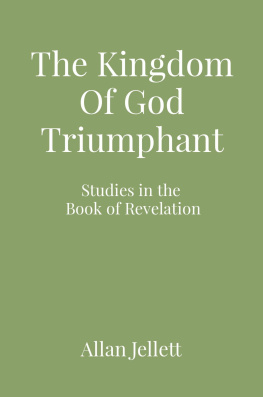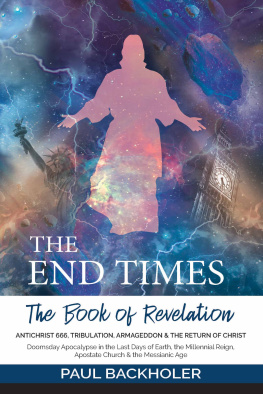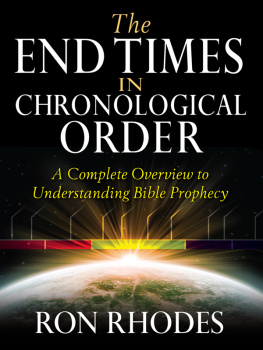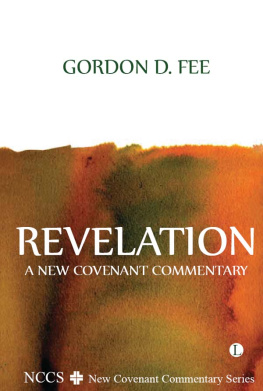Maybe Everyone Is Wrong
Revelations, Conspiracy, and the Kingdom of Heaven
Terry Wolfe
Maybe Everyone Is Wrong
Copyright 2020 by Terry Wolfe
All rights reserved. No part of this publication may be reproduced, distributed, or transmitted in any form or by any means, including photocopying, recording, or other electronic or mechanical methods, without the prior written permission of the author, except in the case of brief quotations embodied in critical reviews and certain other non-commercial uses permitted by copyright law.

Tellwell Talent
www.tellwell.ca
ISBN
978-0-2288-3777-0 (Paperback)
978-0-2288-3778-7 (eBook)
Table of Contents
1
About This Book
Hypothesis (n): a proposal made with limited evidence, intended as a starting point for investigation. A tentative supposition.
T his document is not a publication of factual claims about past, present, or future events, organizations, people, or systems. The views contained within are the product of an ongoing study exercise of Revelation, organized and presented as a proposal for your consideration. It is a radical what if examination, seeking to interpret the prophetic vision of John the disciple in a new way that makes better use of the fascinating details and literary structures of the book. Rather than seeing it as a description of some magical end time of chaos and punishment, or a jumbled metaphor that connects the church age to ancient Jewish archetypes, I believe it is the most intricately and perfectly designed puzzle in the history of the world. This book is an attempt to solve as much of the puzzle as possible, following the hints created by God in a very specific order, using very specific symbolism, to help believers understand that Jesus Christ and God the Father have been in total control of world history ever since Jesus ascended to heaven. Therefore this book examines on our own worlds history (as well as our present age and possible future) not as modern historians who obsess over complicated tangles of circumstances and luck, but as a unified, perfect, necessary plan of God, cryptic and hidden from understanding, yet beautiful and poetic in so many ways.
As I explore this view I will be challenging popular conceptions of Revelation and show, if nothing else, that there is still room for fresh interpretation in the otherwise stale conversations surrounding the most exciting and challenging book of the Bible. Whether this hypothesis is closer to the truth than any other interpretation God alone will know.
I will happily advertise here that important sections of this book are hugely speculative, academically dubious, impossible to prove, ungenerous to certain historic characters, and deeply subjective. Nobody should mistake this for a formal or rigorous treatment of the subject, or accept its proposals as if they have undergone professional scrutiny. All of the research underpinning these views has been done on a layman level with an unsystematic methodology, using intuitive guesswork at times, in my limited spare time. I have no special education, resources, journalistic access, or scholarship. I do not claim to be an expert on anything. Far from it. I would describe it as a sort of meditation on the text:
Meditation (n): continuous, profound contemplation on a subject of a deep or abstruse nature.
All Christians believe things we cant possibly verify, and call it a religion. But this does nothing to diminish it. On the contrary, it is our strength and our joy. We listen to a higher voice, which is called discernment. Our spirit is not factual. It resonates with Gods Word not by intellect or information, but by a personal awakening of our spirit. This allows us to test ourselves and each others ideas through the spirit, in prayerful questioning. Scholarship has never persuaded me to live better, love people more, or suffer persecution with grace, and if they were completely honest even scholars would admit that they pick and choose which facts and narratives suit their personal tastes. No academic proof has ever shown me the gates of heaven, nor pulled me from the fires of hell. The heart hears what is heartful. Change is not chosen, but chooses us, overcoming our nature through conviction, beyond reason. My findings are driven by the feeling of being struck by possibilities, and following them into a powerful appreciation of poetry, irony, and beauty. My study of interlinear Greek, Hebrew, and Aramaic manuscript passages has been fascinating and helpful, and so has expert testimony on various topics, but all of it has been subjected to my own hearts discernment. If my own lack of training has disqualified me to speak on the Bible, so be it. But what shall we say about the experts and their conclusions? Ive seen the end result of their work. They all contradict each other, talk in circles about dull questions, and have altogether offered the church a worse tangle of half-baked guesses than I have in this lowly hypothesis. Indeed, this study did not begin wanting to make anything new, or to be a contrarian, but only to take stock of what was already understood by my superiors. Upon closer inspection, I was profoundly disappointed that even the biggest, oldest, and most highly respected views were shabby and ready to fall apart at the slightest jostle. It has forced me to reconsider everything and start over from the beginning.
This book, therefore, is not a study of religious views, or an attempt to analyze any of them in particular, but a religious document itself, written in a religious mode of thought by a religious man. It is by no means scripture, prophecy, or divinely inspired, though it is written in the strength of my own spirit. In other words, it does not try to prove anything. It is the realm of discussion and personal exploration. Where it deals with factual questions of history, it is certainly missing detail and could be improved, but I have gotten it as accurate as I can with my limited time and resources so far. Think of it as one possible path through Revelation, and one that I continue to question. The most important word in this book might be the very first one you see: MAYBE.
Questions of offensiveness
As a citizen of Canada, Im very grateful for our Charter of Rights, which gives us religious freedom to proclaim our beliefs as long as were not depriving others of their rights. In the Canadian Charter of Rights and Freedoms, Section 2(A), titled Freedom of Religion, we see religious freedom defined as: the right to entertain such religious beliefs as a person chooses, the right to declare religious beliefs openly and without fear of hindrance or reprisal. This book entertains religious beliefs, declaring them, not even to be true necessarily, but possible.
As Christians we must be willing to separate ideas from people, and people from their backgrounds or institutional connections. Only God judges mankind; but we can discuss ideas and institutions while we ask what the Bible is warning us about. When we condemn an idea or an institution, we do not condemn people, nor imply that everyone attached to them are evil, unworthy, or inferior. The Bible establishes Gods standards, and thus it inherently comments on every institutions beliefs, priorities, and ideas. Even without mentioning names, the Bible stands in judgment of mankind. When interpreting or applying the Bibles mysterious symbolism and prophetic passages, therefore, we must be even more willing to let the logic of the Bible shine forward without indicting any person or group, either categorically or individually. As for myself, I have always appreciated Christs teaching when it comes to tolerance, discrimination, bigotry, and hate:
Next page
